
Risk Management
If you are reading this you probably are going to be one of the many recreational paddlers that will NOT be satisfied with the insurance situation and at this point there is little I can suggest.
The deal is this:
NO you are not indemnified for your club activities unless they fall within the narrow band of:sanctioned events for racing, instruction, exhibitions or demonstrations and your club has paid its membership fee and the required per member fee.
OPTIONAL: recreational coverage may cover you for OTHER recreational and sanctioned events but not the day to day interplay of running a club.
Memberclubs must pay a per member fee for liability insurance to Whitewater Ontario (WO), because WO must pay this fee to Canoe Ontario, CO, the provincial Sports body, through whom we receive our annual funding from the ministry of Health ( Promotions Branch).
Pearson and Dunn is our broker, and they deal with All Sports Insurance, an agency that sells for AVIVA insurance.
Worse still, The insurance only covers specifically registered and sanctioned events for racing, demonstrations, related training events and instruction (5:1 rule, students to instructors). This is VERY IMPORTANT for race organizers and organizers of demos and instruction, however.
There is the POSSIBILITY of getting recreational coverage for you or your club through Pearson and Dunn but ONLY if you go to them and say... we are WO members in good standing, and we want you to quote for us. I showed you, for a club your size they want, about $1000. This is for risk management purposes: naturally they want to minimize their own risk and exposure and this is how they do it.
Otherwise, you are on your own for insurance and frankly and in my opinion only, you DON"T NEED IT! You never needed it, and likely will never need it, unless you are running an event like the Kipawa River Rally or something similar or you organize, and run or volunteer in a race, demonstration, exibition or instructional event sanctioned by Whitewater Ontario.
This is not to say recreational event covered for Directors and officers and volunteers isn't important, its just for an individual its not likely necessary.
Recently I boated down the Grand Canyon. There were 18 of us. We agreed, and it was an official meeting between us and the trip leader, that nobody was going to SUE anybody, that everybody was on their own, and they while we would work cooperatively, we were NOT responsible for them and if they thought that, they should NOT be on that trip.
That was the extent of our risk management besides the usual safety gear and so forth required by the PARK SERVICE.
Your questions are extreme relevant to our members. The issues are complex because the fine print is complex on the policies. The brokers and insurance companies like it that way..
Background Information
Contacts:
BFL Ontario Inc.
1565 Carling Avenue, Suite 606
Ottawa, Ontario K1Z 8R1
Canada
Tel: (613) 722-7798
Watt: (888) 244-6709
Fax: (613) 722-7829
Rosemarie Dunn, R.I.B.O.
Account Manager, Special Lines
Pearson-Dunn Insurance & Financial Services Inc.
1-800-461-5087 ext 133
(905) 575-6809 ext 133
(905) 575-4250
rdunn@pearson-dunn.com
Tanja K. Link R.I.B.(Ont.)
Account Executive, Special Lines
Pearson-Dunn Insurance Brokers
260 Nebo Rd.
Hamilton ON L8W 3K5
905-575-1122
800-461-5087
Insurance and Canoe Ontario numbers
As far as instruction, to be insured by WO, yes a certified instructor is required. A list of participants is sent to the WOoffice prior to the course. A $5 / day insurance fee is collected from non-members taking the course to cover them. The insurance is covered as long as the WO office person gets a list of participants prior and are charged $5 each for day insurance.
Cost for a course?
The clubs usually set their own fee. As a guide, a 2 day intro course at Minden is what, $175? Pariticipants fees for intro kayaking are $ 190.00 per adult and
$ 150.00 per junior. There is a discount for more than 1 junior in the same family. It costs $ 250.00 for head instructor, $200.00 for assistants and another $ 200.00 for meal preparation.
Ratios are supposed to be 5 to 1.
Club membership is $25 with each member paying $20 rather than than the individual membership of $30.
WO's basic insurance policy (sport injury and liability) covers instructional and competetive events. Specifically, it includes "games,
competitions or sports demonstrations run by you (Canoe Ontario and their affiliates -- one of which is whitewater ontario) or by
member clubs authorized by you including related training at sites of events and club premises".
Typically we've viewed pool sessions as instructional. If it were considered training, we'd need to have a written agreement with the club, as we don't have a policy per se. If it's instructionaly, Caroles outline is accurate.
If it's a purely recreational event, then it's not covered under the basic policy and would have to be covered under the
"recreational liability policy" that clubs can purchase from All-Sport, our insurer. The existing policy only covers events and related training. It
provides a very basic sport injury insurance and liability insurance for the individuals. It does not insure the officers of the club.
If you're required to include an additional insured e.g. UWO, then the basic plan wouldn't likely be enough and the additional
liability insurance would have to be purchased from the insurance vendor. You'd need to check this with All-sport as we can't act to interpret
the plan, as we're not insurance brokers.
The Pool Sessions are not run as instructional. We are a group of able paddlers getting together to rent a pool. Since the individual
who signs the contract for the rental becomes liable, we need to source insurance. We think the best route may be to form a club and
become affiliated with WO.
The annual premium and membership review...
This is about collecting the appropriate numbers for insurance purposes and for Canoe Ontario reporting and grant purposes.
First, our membership numbers are due to Pearson & Dunn by February 15th. This is non-negotiable. For sprint members I would suggest that we supply a list of clubs who have reported the appropriate numbers by this date to Pearson & Dunn, otherwise clubs are not insured for the upcoming season. Marathon and Whitewater, I'm not sure how your club system operates but it is imperative that the correct numbers get back to the insurance company. This exercise is to update the numbers that were supplied to Pearson & Dunn in the spring of 2006. P&D then recalculates our premium which was paid by Canoe Ontario. This exercise is to allow them to adjust those premiums to reflect our actual membership for last year (year ended September, 2006) and also to prepare a preliminary bill for the upcoming season. We need these premiums in place as soon as possible.
1. According to the Ministry of Health and Promotion guidelines there really shouldn't be a one day Canoe Ontario fee for any paddler. They are only interested in participants that are receiving an ongoing program from a club. So, paddlers that come one day for a dragonboat festival should not be subject to a Canoe Ontario fee, nor should paddlers that come for a try it out. Paddlers that come for regular dragon boat training would be subject to the fee, paddlers that participate in an intro program would also have to pay the fee. The Ontario ministry is looking for numbers that reflect ongoing participation, people that gain an ongoing health benefit (in my words) for purposes of their funding.
2. From my understanding of conversations with Pearson & Dunn, the classification of one day paddlers vs. multi day paddlers has been misunderstood (by me at least). P&D has clarified that a multi day paddler is really a member who participates throughout the season in a regularly scheduled program. For programs such as a week long intro, the one-day fee applies. For my club (RHCC) this will reduce our final insurance costs as we had previously considered participants in our five day intro programs to be multi day insurance.
Just to clarify, Clubs wanting the Recreational coverage do need to apply direct to P&D as in prior years. However the compilation of total club membership including splits for full time and day participant counts needs to be done by the Affiliate and then submitted to P&D. Clubs shpuld then their counts to the affiliate person responsible for tracking membership.
There have been no claims on the Canoe Ontario policy that I'm aware of. If the Exxon Valdez sinks, all the insurance policies go up in cost to cover the costs incurred by the insurer. It's got next to nothing to do with the inherent risk in the sport, unless there are claims made and then watch it skyrocket! Skiing pays some obscene amount for their insurance.
Whitewater Ontario has very extraordinary needs when it comes to insurance because members who paddle have traditionally "self insured" after considering risks associated with their sport.
Organizers of events on the other hand are my particular focus. Claims experience on this policy and the answer has been consistent: 'don't ask'. But I ask, because our members ask, and because the nature of risk in our sport has been used "against us". PWGSC specifically cited "high risk" and "extreme" in their bogus Environmental Assessment - which is the subject of a judicial review launched against the federal government by Les Amis supported widely by the whitewater paddling community. Risk Assessment and claims experience is relevant to maintaining access to rivers.
Members also see "availability of insurance" as a benefit of membership to whitewater ontario. My job in asking the questions is to better communicate those benefits to potential members. What are the risks, what are the coverages. We know that races, games and instruction strcovered but recreational use is also very important to us. Aggregately, premiums are being paid for coverage that may also be pooled.
I am not making any judgements here and I have no authorization to "shop around" but who else brokers against AVIVA's insurance, is All Sport the only broker in association with Pearson Dunn? Is All sport the best way to go or are there other alternatives for our special interest groups : organizers of recreational festivals like the Kipawa River Rally and the Gull fest. Coverage is needed for the organizers and volunteers which is not specifically covered in the request for "numbers".
We are looking for premium and loss information, and that's fine but it is a way too late in the process. If you get it, and I question whether they will provide same, what are you going to do with it ? There is very little leverage here at this late date for CO. There are very few providers of Sport Liability and Accident coverage in the CDN marketplace because of the high risk nature, volunteer base activities, and frankly a limited risk control environment. Too late to even attempt to shop the coverage if you can even find other providers.
If you want to shop the coverage you need to start immediately after the renewal of the current policy because it will take you a year to look around and see what's out there particularly in a volunteer organization.
On the nature of insurance in general:
It's a pooled risk. This is commercial liability coverage, and when the insurer Aviva assesses the premium they don't just look at Sport Canada claims which as far I know are minimal in frequency and severity, they look across their entire commercial liability exposure. The average home insurance premium in Canada is $500/year when's the last time your house burnt down, when's the last time you asked your insurer for premium and loss stats on their homeowners business. There are publications you can go to get stats and some stats are filed as a matter of public record if you really want them.
Getting the data P&D needs as a broker to deliver the quote and renewal. If you really want to go after this thing you'll need to make a commitment to start a process to shop around.But keep in mind the average premium we are talking about here I think is about $5 a person, at the end of the day you have to make a time vs savings judgement how much can you really save and is it worth your effort.
Needed: contact information as to the person we are suppose to deal with for Canoe Ontario's Insurance Policies. We need to obtain total membership #'s & day of event member #'s for this past year as well as provide renewal terms for the upcoming year. You were our main contact on the account, and looked after all of the above, now we understand that Peter Karwacki is now the new president of Whitewater - but he is not the contact person that we need to deal with directly on the entire account.
- These are recreational rates paid for by the Clubs directly and provide Directors and Officers Errors and Omissions coverage in addition to commercial liability and sport accident coverage, the Clubs get access to the coverage as a result of their association with the Affiliate and Canoe Ontario. - The rates are not out of line with previous premium charges
- Protocol dictates that the Affiliates have internal discussion on this matter before one of the Affiliates stakes out a position directly with the brokerage, you should convene a conference call with Joanne and Ian which is a party of three and represents all 3 affiliates including Canoe Ontario since Ian represents both Marathon and CO.
- Each affiliate before going to the meeting should consult their Club base and their Executive,so they can discuss input received and make informed decisions instead of the President of one affiliate taking a unilateral position, for example you should call Doug Corkery and get his input and folks should understand what alternatives are available, Doug runs Trips for the ORR and I am sure he would be concerned if this coverage was not available so give him a shout and discuss same
- Be careful in how you communicate with the Broker, this is a business their profits on this book of business are limited and they invest a lot of time corresponding with volunteers, don't jepoardize the relationship without a viable alternative
- Keep your communication professional and don't commit WO or CO to a position without full buyin
I think the problem starts right here:
$$$$$$$$$$* Clubs with membership to 100 = $850 $$$$$$$$$$$$$
All of our clubs are small.
* Clubs with 101 to 300 members = $1,000
* Clubs with 301 to 550 members = $1,375
* Clubs with 551 to 750 members = $1,750
* Clubs with 751 to 1,000 members = $2,125
Unaffordable.
At these rates our WO organization will opt out else they'd be working for the insurance company.
First we are in club redevelopment mode. We are in environmentalism mode, fund raising for environmentmal actions that are not charitable by
definition, preserving the environment, baking cookies to pay for a lawyer's fees is not on.
This is not workable, and to many, I dare say reprehensible not to put too kind a spin on it.
The idea is to make this number workable to encourage membership and involvement, to encourage buy in. You have your policy but your
enrolment could grow and be much more profitable. Would you rather have one club @ $850, or say 20 at $300?
Examine your claims history, you'll see that the losses simply aren't there, and there are ways of building in risk management caveats.
rec insurance...
I have attached an outline and blank application for the Recreational Canoe Policy that is available for Clubs under Canoe Ontario. We do already have a number of clubs insured under this program. If you would like to forward a list of all clubs under Whitewater, we would be happy to send this package to all. This will ensure all clubs have the information needed.
I will forward, once I have the copy for this term, the list of excluded activities. Thus it can also be sent with the package.
By now you have a premium calculated and issued to Canoe Ontario for its affilates. Further to our telephone conversation I need some clarification.
Many of our members are involved neither in demonstrations, instruction or racing. We do not want to have to pay insurance when these people are not part of the pool of people who are to be insured. When we report our numbers for membership am I correct in assuming that members who neither race, instruct, or demonstrate do not need to be reported?
This is quite important because I am researching the possibility that individuals who wish to join Whitewater Ontario, would automatically become members of the American Wildwater Affiliation and receive their journal.
So the membership aspect is quite important.
We do not want to discourage membership over premiums for members especially when there are far more paddlers out there, who currently do not belong to any club or association or belong to one uninvolved with Whitewater Ontairo simply because they feel the insurance premium is unnecessary since they neither race, instruct or demonstrate.
The policy covers:
Canoe Ontario and its 3 affiliates.
The affiliates are comprised of Clubs.
The Clubs are composed of members.
The coverage applies to the Club and all members of the Club including volunteers, coaches, drivers etc. Members cannot opt in or out of insurance coverage. To do so would present the following problems for the broker and insurer:
1) Requires that the definition of 'insured' under the policy be redefined and a totally different coverage be offered. You are no longer covering the organization in whole rather selected 'individual' members of a Club. Thus it becomes a personal liability insurance cover as opposed to a commercial 'organization' based liability cover. You cannot cover 1/2 or 1/4 of the Club either you cover the Club as represented by its full membership or you dont. If you dont cover the Club it becomes an individual personal policy.
2) The charter of WO among other things is to provide instruction , support the racing community, focus on river preservation, train instructors, provide river rescue training, recreational river running etc..Many of these activities require insurance support. In fact the Directors of CO , Marathon, WO, Sprint require E&0 coverage to carry out their mandate which is supported by the insurance. Clubs or individual members that are not interested in supporting these activities or dont want to pay for insurance should withdraw from WO or WO needs to change its mandate which is not being advocated here.
An insurance opt out is a non starter under the current construct of WO and the CO policy.
P.S. Personal umbrella liability policies generally provide excess cover only and require a basic underlying cover. Even in narrow circumstances involving existing auto and home policies, the cost is about $450 for an individual. This vs $5 for liability cover (requires no underlying coverage) including sport accident cover under the Aviva policy.
- These are recreational rates paid for by the Clubs directly and provide Directors and Officers Errors and Omissions coverage in addition to commercial liability and sport accident coverage, the Clubs get access to the coverage as a result of their association with the Affiliate and Canoe Ontario
- The rates are not out of line with previous premium charges
- Protocol dictates that the Affiliates have internal discussion on this matter before one of the Affiliates stakes out a position directly with the brokerage,
- Each affiliate before going to the meeting should consult their Club base and their Executive,so they can discuss input received and make informed decisions instead of the President of one affiliate taking a unilateral position
- Be careful in how you communicate with the Broker, this is a business their profits on this book of business are limited and they invest a lot of time corresponding with volunteers, don't jepoardize the relationship without a viable alternative
professional communication requires no commitment by WO or CO to a position without full buy in by all affiliates and Canoe Ontario.
cheap insurance (if any exists) to run trips ?
Want to run a couple of trips and want to make sure you are protected, but don't want to break the bank to run them. Do insurance companies often separate the insurance for the trips from insurance for the drive up?
The CRCA has affordable liability coverage for its instructors. It may be worth getting the cert as private insurance tends to be cost prohibitive especially if you only run few courses.
1Get your insurance through a broker.
2. Use a policy was greared towards an entire guiding operation. If a single owner/operator, there is no policy specifically for owner/operators, rather a full operation policy, but with insurance for only one boat, one guide, one truck, etc, etc.
3. The first year the policy might be $1200.00 for a full year, the second year it will rise to $1500.00. This was close to the average amongst insured Ontario guides ($800 - $2000 for new policies), although most guide outfits would add additional guides to the policy to split costs.
5. Some organizations offer limited insurance for their members, but check to see if the coverage is enough for your needs. The OFAH (Ontario Federation of Anglers and Hunters) offers a limited policy to all its members, but the liability wasn't enough ($100,000.00, s/ b $1,000,000.00).
You can be sued, even if your net worth is not very large. The liability system in Ontario is structured so that lawsuits result in the care of an injured party. If one of your clients is injured in such a way that they need monetary assistance for a length of time, and you are found to be responsible for that injury, then your wages could be garnered for as long as it takes to pay the value of that care.
Small operators - often operate without insurance, under the belief that "If I don't have anything, I can't be sued" - that simply isn't the case. Operating without insurance is definitly a calculated risk: just make sure you are calculating the risks correctly. Check with some of the established tripping companies and see who is offering liability insurance to tripping companies these days. It is normally limited to one or two companies.
If you do it on your own, expect to pay a fair bit. It is quite often calculated on a cost/client/day basis, but with a minimum amount up front. Last time I had to do it - which was a few years ago - the minimum was $1500 and the per person cost was $3.50/day/person.
If one of your clients is injured in such a way that they need monetary assistance for a length of time, and you are found to be responsible for that injury, then your wages could be garnered for as long as it takes to pay the value of that care.
It would become an issue if you decided to guide somebody who didn't have health insurance, a steady income, or investments. Lawyers are like electricity, they follow the path of least resistance to the money. I doubt if the courts would find someone responsible for care in a situation where the injured party is wealthier than the guide, and already has his/her own applicable insurance policies.
The main purpose of liabiliity coverage is to reimburse the lost income of bereaved spouses in the event something happens to their husbands. It doesn't have to be the fault of the guide..... If a wealthy client died of a heart attack on a tript his wife would send the (lawyers) after whomever she could, but no court is going to have one pay to support the 'lifestyle to which she has been accustomed'. If I had $1,000,000.00 liability coverage though, she'd be getting her new BMW.
It's important to know your clients, and factor that into your insurance decisions. If the trip is happening in Ontario you have to be set up with ORCA. To offer ORCA courses you need to be an ORCA Organizational Memeber, and an ORCA Instructor. You could then run your trip as a course and then be covered by the insurance plan which ORCA has in place. I think there are a probably a number of companies using this package.
I think it is a loop hole, as a trip should be a trip, but in the face of a $2000 insurance bill for 1 or 2 trips a year, it makes sense. It is the companies who are organizing 15 trips under the auspices of ORCA.
http://www.orca.on.ca
civil liability (different than legal liability)
If the courts find that you, as a guide, bear the responsibility for the disabling accident, then it is you, not the client (or the clients insurance) that has to pay for the care that is a result of that accident. Why should they pay, either personally or through their health insurance, for something that you did? It's a bit like saying "I rented a boat from a shop and then ruined it. The shop has more money than me, so they should pay for it."
If you decide to become a "guide" then you are, in essence, assuming a larger responsibility than a "participant": that's what a guide does.
If you have only acquired assets of <$50,000, and they are removed to recompense a victim you were guiding, then that is going to leave you in rough shape. The garnishing of wages in the absence of a deeper pocket is going to ensure that you serve as an example to others who believe that they, too, should engage in an activity that involves fiduciary duty (duty of care) to clients without adequate coverage.
As a canoe instructor, getting insurance to do trips with clients, after finding out the costs, I changed my plan to do only instruction to ensure I was covered. If the ensurer (acquired through ORCA, and I assume the same applies for the CRCA) discovers that the trip was a 'trip' masquerading as a 'course', then you will not be covered. I learned this while discussing the issue with ORCA executive.
You could do a lot of damage to our industry by having a mishap with an international or Canadian client on one of your trips if you are not adequately insured. If you doubt the importance of having insurance, let your clients know you are not covered and have no assets as they are getting into the boats. Watch their reaction.
The greater picture... the one of onerous and prohibitive policy makers stuffing their pockets, as well as those of the insurance company executives.
If you have more safety training than any other guide there is no reasonable coverage because no insurance company will take the time to evaluate a unique situation. You will be expected to pay the premium of a full scale, multi-boat operation. They figure 'not a big operation, not worth the risk'.
People who are qualified to guide trips and want to, but have to do so without insurance because the profit margins aren't there for the insurers. They have statistical risk/return figures calculated to generate the highest Sortino ratio (return to downside deviation). This is an industry that makes it prohibitive for organizations like the CRCA, ORCA, OFAH, and whomever to offer decent liability insurance to their members at less than a ridiculous cost, for the activities they are qualified to run.
Legal policy makers are trying to respect the individual's situation, but in the end, the policy is no more geared towards legal rights than it is towards protecting a multi-billion dollar industry.
If you are truly qualified to be guiding, and there is no applicable insurance policy designed for you in your particular situation, then you may choose to pass on insurance.
If you can demonstrate that you did everything in your power to ensure safety, and you can demonstrate that you took all the correct actions in an emergency outside of your control (ex. somebody is hit by lightning after you have gone to shore and sheltered under low brush or short trees at least 10m from the water), and you administer all the correct first aid, and you have all the necessary first aid gear if the courts make you shell out your salary for years to come because of a situation like that no insurance would have made a difference.
The threat of liability, and the associated costs of insurance, casts a huge shadow over the whole outdoor adventure industryBe responsible. Go out and do what you enjoy, and help other people learn to appreciate the outdoors. Life is too short, and there are too many people who need your help. If your serious about operating a business, incorporate it so that you're not personnally liable.
under W.O. (Whitewater Ontario)
Viable insurance or "protection" net to run my intro kayak courses (flatwater and basic whitewater) and day trips.
for courses (paying $5.00 a head for participants)
Those courses have to be "Whitewater Ontario" sanctioned events and meaning they would have to sponsored through a member club.
Organizations are routinely quoted in the range of $2,000 (from the same insurers that provide insurance to Whitewater Ontario) to get private coverage
As an owner/operator with 0-1 employee, in the event of a court case, the courts would 'pierce the corporate veil', and hold one PERSONALLY liable. It appears that there is a strong disincentive for us to do what we really love doing - introducing others to our respective sports. Incorporating will not protect you personally if it can be proved you were recklesss or negligent, and the fact that you"...have more safety training than any other guide merely increases your liability if things go wrong in that your superior knowledge increases the standard of care you should be exercising.
Assembling a group of people to go under a policy?
Chambers of commerce do the same thing- to extend the various types of insurance to their members, who are also owner/operators - set up a 'Outdoor Adventure Chamber of Commerce' . One requirement would have to be a comprehensive risk management plan for each member - which could be templated - which would be available to all members.
http://www.northernontariobusiness.com/industry/tourism/2955707-04-insurance.asp
This organization has already done some work on this front it appears with not a huge amount of success (reducing insurance fees) but at least providing a voice.....
http://www.tiac-aitc.ca/english/insurance.asp
The insurance business appears to break a few backs along the way. Putting people out of business so they can make a profit with little-to-no-risk sort of flies in the face of what they are supposed to do - they were originally designed to insure risk! It is unfortunate that because of their poor decision-making skills (poor investment decisions) and one act of terrorism, we all end up paying. It doesn't appear (once again) to be the people at the front lines that are making these decisions, but people who we have no opportunity to contact and lobby directly. The most dangerous part of a well-run wilderness trip is still the drive up!
This article published in Australia...kind of helps explain the "big picture" with the Insurance industry in general. It appears that like many other industries, it is "cyclical" in nature.
http://www.ssn.flinders.edu.au/geog/geos/Irwin.php
At any rate, I also found this document on the canadatourism.com website which lists insurance brokers that sell specifically to the Adventure Industry in Canada...
http://www.canadatourism.com/ctx/files/publication/data/en_ca/product_development/database_of_insurance_service_providers_for_adv_and_eco_operators_2002/InsuranceServiceProviders.pdf





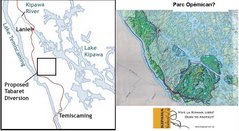

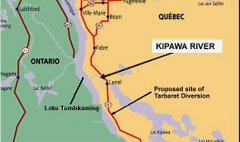

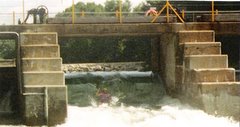







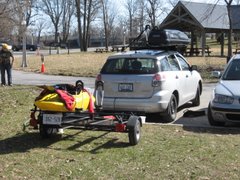

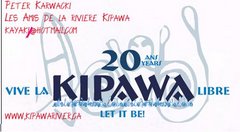



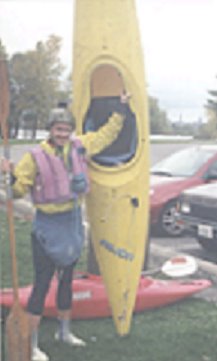



No comments:
Post a Comment